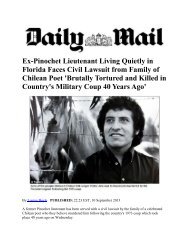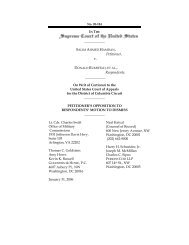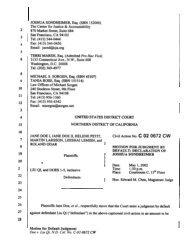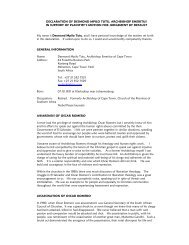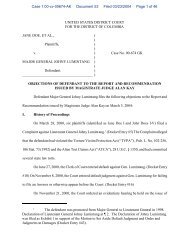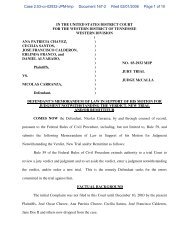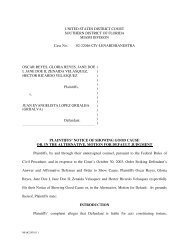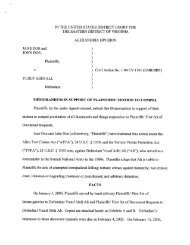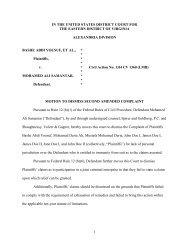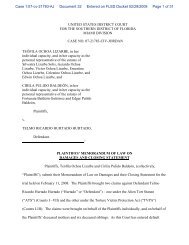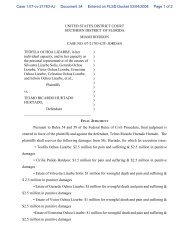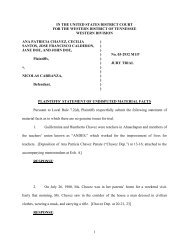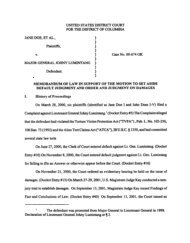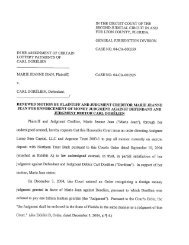SOSA v. ALVAREZ-MACHAIN - Legal Information Institute
SOSA v. ALVAREZ-MACHAIN - Legal Information Institute
SOSA v. ALVAREZ-MACHAIN - Legal Information Institute
You also want an ePaper? Increase the reach of your titles
YUMPU automatically turns print PDFs into web optimized ePapers that Google loves.
Cite as: 542 U. S. ____ (2004) 15Opinion of the CourtSee, e.g., Dorman v. Emerson Elec. Co., 23 F. 3d 1354 (CA81994) (applying Canadian law where negligent saw designin Missouri caused injury in Canada); Bing v. Halstead,495 F. Supp. 517 (SDNY 1980) (applying Costa Rican lawwhere letter written and mailed in Arizona caused mentaldistress in Costa Rica); McKinnon v. F. H. Morgan & Co.,170 Vt. 422, 750 A. 2d 1026 (2000) (applying Canadian lawwhere a defective bicycle sold in Vermont caused injuriesin Quebec).In sum, current flexibility in choice of law methodologygives no assurance against applying foreign substantivelaw if federal courts follow headquarters doctrine to assumejurisdiction over tort claims against the Governmentfor foreign harm. Based on the experience just noted, theexpectation is that application of the headquarters doctrinewould in fact result in a substantial number of casesapplying the very foreign law the foreign country exceptionwas meant to avoid. 8Before concluding that headquarters analysis shouldhave no part in applying the foreign country exception,——————8The courts that have applied the headquarters doctrine, believing itto be intimated by our emphasis, in Richards v. United States, supra, onthe place of the occurrence of the negligent act, have acknowledged thepossibility that foreign law may govern FTCA claims as a function ofRichards’s further holding that the whole law of the pertinent State(including its choice-of-law provisions) is to be applied. See, e.g., Leaf, 588F. 2d, at 736, n. 3. Some courts have attempted to defuse the resultingtension with the object behind the foreign country exception. See, e.g.,Sami v. United States 617 F. 2d 755, 763 (CADC 1979) (believing thatnorm against application of foreign law when contrary to forum policy issufficient to overcome possible conflict). We think that these attempts toresolve the tension give short shrift to the clear congressional mandateembodied by the foreign country exception. Cf. Shapiro, Choice of LawUnder the Federal Tort Claims Act: Richards and Renvoi Revisited, 70N. C. L. Rev. 641, 659–660 (1992) (noting that the Richards rule that thetotality of a State’s law is to be consulted may undermine the objectbehind the foreign country exception).



